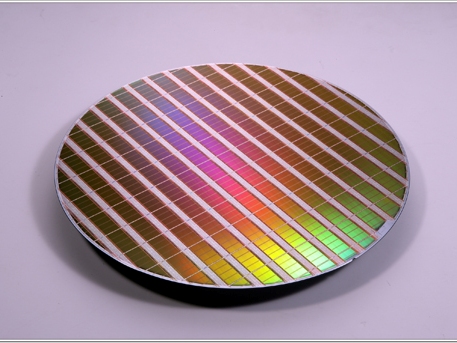Samsung promises 128GB flash drives by 2009
So your next laptop will be lighter and quieter

Samsung has announced that it's developed the world's first 64 Gigabit (Gb) multi level cell NAND flash memory chip. It's the eighth consecutive year that the density of flash memory has doubled, a feat that bodes well for portable devices like laptops and iPods.
By sandwiching together 16 of the new cells, Samsung says a 128GB memory card is now possible.
Flash to replace hard drives?
Currently, the capacity limitations of flash memory have hampered notebook manufacturers who want to use the technology instead of traditional hard discs. And one of the biggest criticisms of the current iPod touch is that 16GB-worth of storage just isn't enough.
Samsung's new chips could be the first step towards changing all that. Samsung says a maximum of sixteen of its 30nm flash devices can be combined. The result would be a 128GB memory card that could store 80 DVD resolution movies or 32,000 MP3 music files.
A 128GB card would also be big enough to replace the HDD in a notebook. Apple was linked with so-called Solid State Drives earlier this year. SSDs are not only lighter and faster than hard drives but they consume less power and are also considerably more robust as they have no moving parts.
Lighter, quieter laptops by 2009
These 128GB memory cards are likely to be very expensive, so the death knell isn't quite sounding on the traditional hard drive just yet.
Samsung expects to begin production of 30nm-class 64Gb flash devices in 2009. And according to Gartner Dataquest, the accumulated sales for 64Gb NAND flash and higher density devices could reach up to $20 billion by 2011.
Get daily insight, inspiration and deals in your inbox
Sign up for breaking news, reviews, opinion, top tech deals, and more.
By the end of 2009, iSuppli has predicted that 28 per cent of ultra-portable PCs will use some form of flash memory for storage.
James was part of the TechRadar editorial team for eight years up until 2015 and now works in a senior position for TR's parent company Future. An experienced Content Director with a demonstrated history of working in the media production industry. Skilled in Search Engine Optimization (SEO), E-commerce Optimization, Journalism, Digital Marketing, and Social Media. James can do it all.
